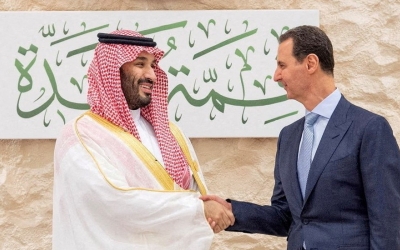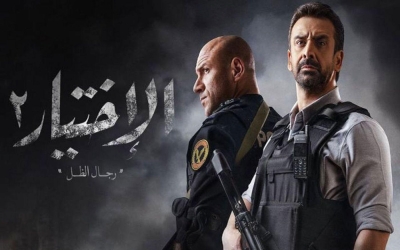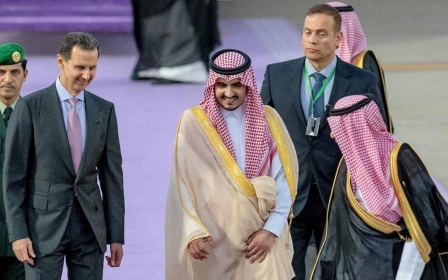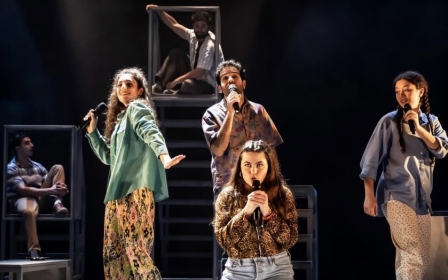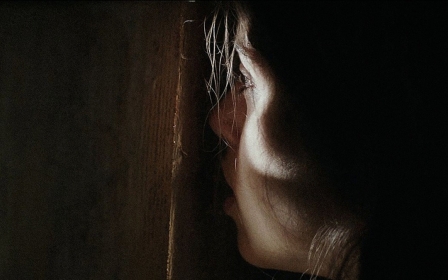Antigone: Classical Greek tragedy offers lessons for the modern Middle East
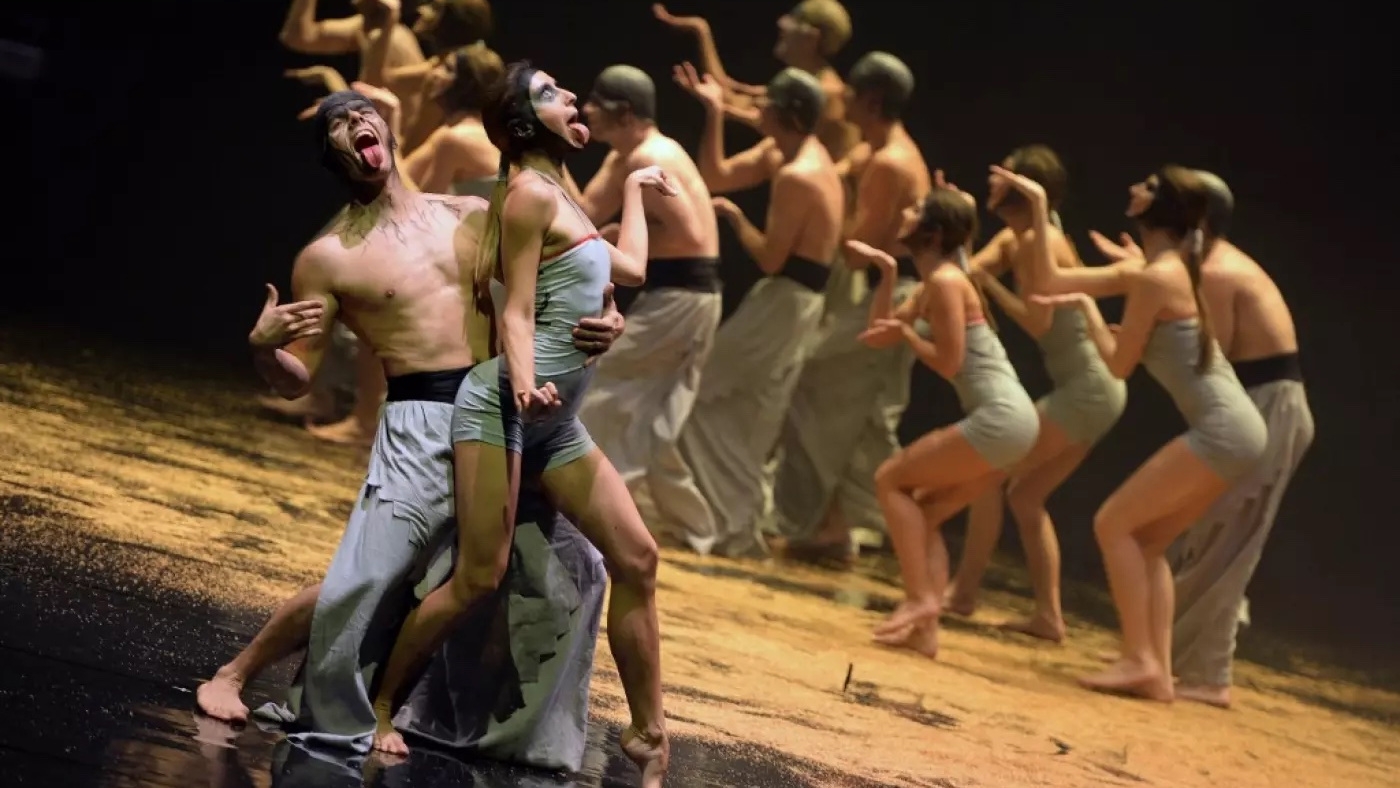
Antigone, in the eponymous classical Greek tragedy, buries her brother in defiance of the king's decree.
After a rebellion, in which Antigone's two brothers kill each other, her uncle, King Creon, decrees that rebels will be denied burial rights; only those who fall on the side of order would receive proper funerals.
After breaking the law to bury her brother, Antigone challenges the king: "Death longs for the same rites for all."
Theatre directors, scholars and philosophers have read Antigone as standing for defiance in the face of authority, for divine laws in the face of manmade laws, for kinship in the face of the state, and for the universal right to mourn - a right even traitors should receive.
Antigone's defiance does not dwell on the righteousness of her brother's stance or whether she condones or condemns his rebellion; even if he were a traitor, "death longs for the same rites for all”.
New MEE newsletter: Jerusalem Dispatch
Sign up to get the latest insights and analysis on Israel-Palestine, alongside Turkey Unpacked and other MEE newsletters
Creon's dilemma, on the other hand, is the dilemma of power in the aftermath of civil strife. His need to stress his authority and the triumph of his order undermines his ability to pull together a city-state torn apart.
By refusing to extend burial rights to the enemies of the state, the triumphant king undermines his own triumph by positing himself as an opponent, rather than the sovereign, of the former rebels. This in turn brings on Antigone's rebellion and, in the world of the play, the tragic fate of Creon, who challenges the eternal laws of burial and mourning.
From Creon to Assad
In Syrian President Bashar al-Assad's short speech at the Arab League summit in Jeddah in May, the conciliatory atmosphere was interrupted by a passing note on the need to sustain the confrontation against "Brotherism" (meaning the thought and methods of the Muslim Brothers).
The note was clearly directed against Turkish foreign policy. However, the reference to Brotherism registered an intent to remain the opponent, rather than the sovereign, of a certain faction of Syrian and Arab “brethren”.
A month later, the Syria-Russian air bombardment of Idlib, under the pretext of rooting out resident terror groups, renewed Assad’s stance against “Brotherism” in Syria.
Various pro-Assad social media accounts quickly switched from celebrating his triumphant reconciliation with other Arab regimes to a jingoistic celebration of the bombing.
Like Creon, they may think an iron fist can restore an undermined authority and a fragmented state power, and may regard other ethical complications created by the trail of dead bodies left by this iron fist as mere collateral nuisance.
But it is this iron fist that has, from Creon to Assad, undermined rulers' authority and degraded them to an adversarial position, where they had hoped to reign supreme.
The atmosphere of sustained confrontation that perpetuates the Syrian civil war also perpetuates Assad’s position as the opponent to at least a section of his people, rather than "the president of all Syrians".
This is especially the case when, for his audience of autocrats, the Creons of the Middle East, Brotherism is a metonym for the opposition at large, and a pretext to sustain Creon's purge - one that exiles rebellious brethren not only from the realm of legitimate politics, but also that of legitimate mourning.
The right to mourn
The theme of who has the right to mourn and who is deprived of this right dominates the three-season Egyptian television series al-Ikhtiyar (The Choice). Especially in its second season, reason after reason is given to the viewers to feel mournful for the fallen police officers, whereas the fallen members of the opposition are consistently depicted as either the victims of their own factions or as deserving of their fate.
At a time when the Egyptian authorities were only allowing rushed burials and no large funerals for some opposition leaders who died in prison, and wherein the very expression of mourning became politicised and thus prohibited, the television series created a map of legitimate and illegitimate grief.
At the end of al-Ikhtiyar's penultimate episode, after arresting a terrorist who had plotted an attack on the stadium hosting the opening match of the Africa Cup of Nations, the police officers called on the prisoner to watch the match with them.
They chastised him, half-jokingly, about his intent to harm an icon like Egyptian footballer Mohamed Salah. "Do you know how much he costs?" one of them says. The other policeman, with a hint of a smile, adds, "even your string-pullers would be upset [if you harm him]".
The camera shifts between their faces and the TV screen showing Salah and other footballers singing the Egyptian national anthem, and then, against the backdrop of the anthem, tracks to the pictures of fallen policemen displayed on the officer's desk, before it fades away and cuts to credits.
The scene on its own may suggest a momentary break with Creon's logic: the invitation extended to the terrorist prisoner to watch the match with the police officers suggests a conciliation between the victors and their captive.
Although the grievable pantheon of fallen police officers continues to exile members of the opposition from legitimate mourning and grief, the collective mourning for the fallen policemen is something many of the regime’s opponents would line up behind, or at least not object to.
Re-establishing order
Nevertheless, the same night the episode was broadcast, the series' cast performed a chorus song titled We Are Not Ones to Mourn, vowing to let go of feeble remorse and continue the path of the victor's justice and vengeance. (Throughout the series, the labour of anxiety, fear and grief fell on the women, leaving the men as invincible figures of authority.) The song was performed and filmed in Cairo's iconic Tahrir Square.
Although the events of the second season were thus concluded, a final episode was added with documentary footage chronicling alleged terror plots that had been thwarted by the Egyptian police.
The lessons of Antigone and Creon, nevertheless, can tell us something about mourning as a political and ethical right
As a coda to the series, the chorus song and the final episode not only undid any conciliatory appeals the penultimate episode may have effected, but also registered a turning away from collective mourning as a political project altogether - even if the ones being mourned were policemen. Creon’s path remains the choice.
Evidently, Greek tragedy does not offer solutions to our modern political problems. Moreover, emotionally and ethically charged notions like conciliation and mourning are not sufficient to transcend material political realities or amend deeply rooted injustices.
The lessons of Antigone and Creon, nevertheless, can tell us something about mourning as a political and ethical right, and about the realpolitik of re-establishing order against a backdrop of civil strife.
More importantly, they tell us something about the price to be paid when these notions are overlooked.
The views expressed in this article belong to the author and do not necessarily reflect the editorial policy of Middle East Eye.
Middle East Eye delivers independent and unrivalled coverage and analysis of the Middle East, North Africa and beyond. To learn more about republishing this content and the associated fees, please fill out this form. More about MEE can be found here.



